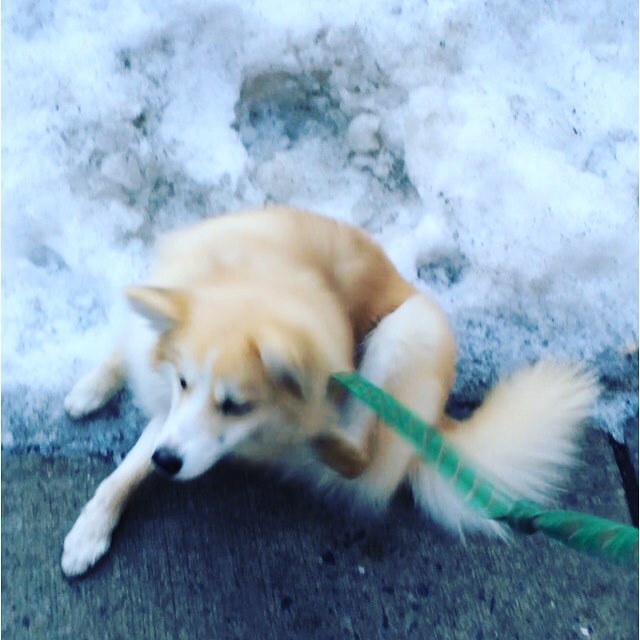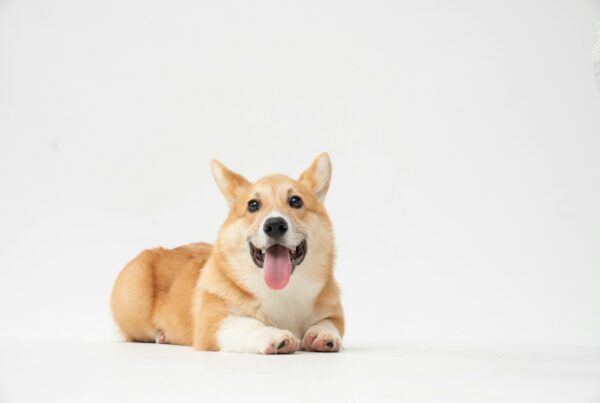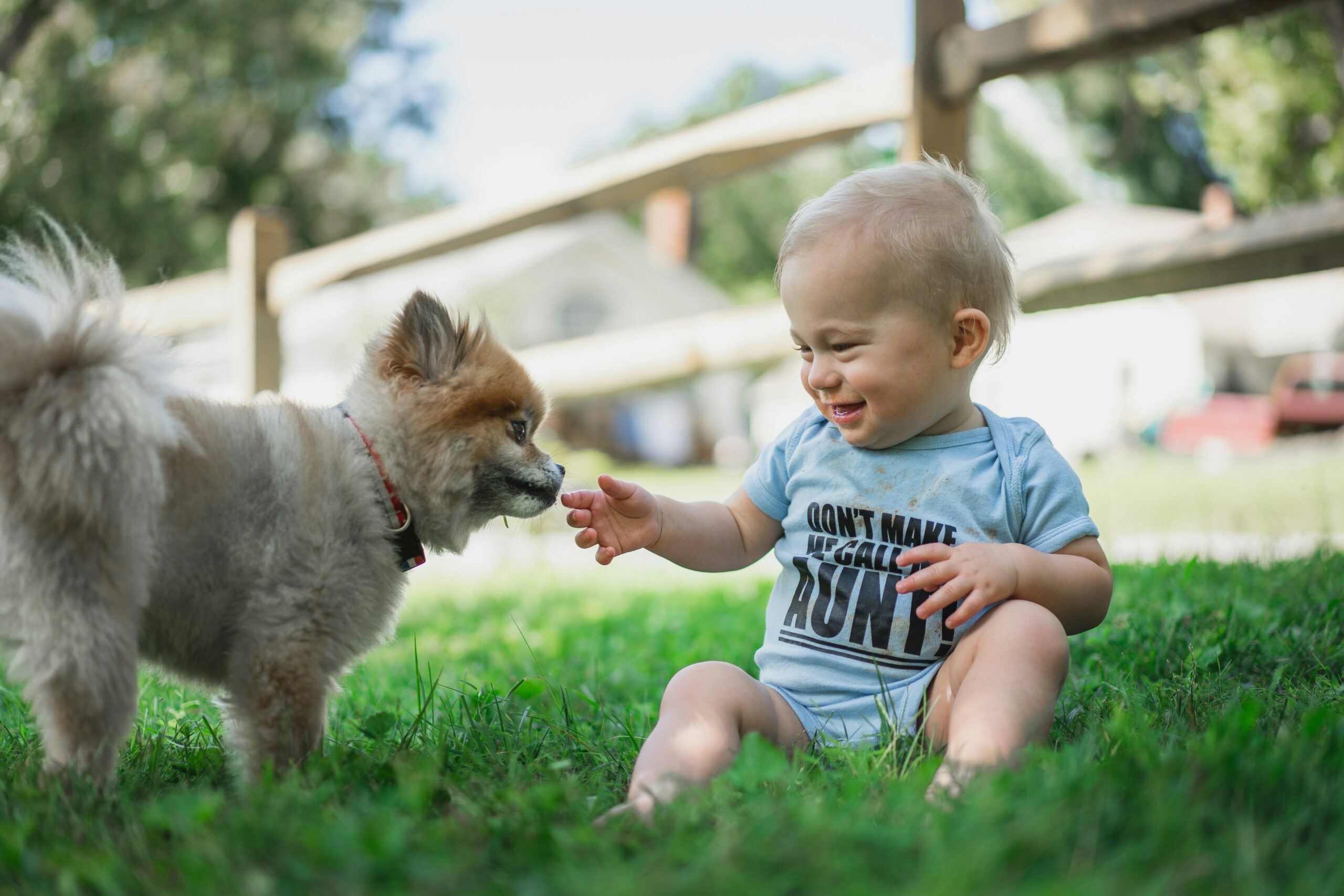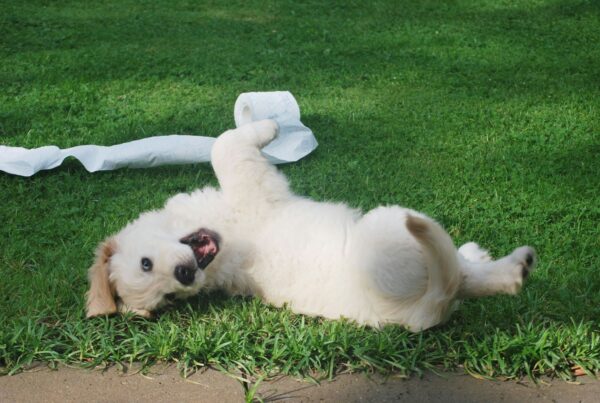Canine hot spots, medically known as Acute Moist Dermatitis, are painful and inflamed areas on a dog’s skin that are often exacerbated by scratching, licking, or biting. These irritated patches can significantly discomfort your canine companion, making an understanding of prevention and treatment paramount for dog owners.
We’ll take a look at the causes and common symptoms of hot spots, and how you can both prevent and treat your dog’s hot spots.
Understanding Canine Hot Spots
Common Causes
Hot spots are typically a result of an initial irritation that spirals due to the dog’s reaction towards it. Common triggers include:
- Allergies: Environmental, food, or flea allergies can lead to skin irritation.
- Parasitic Infestations: Fleas, mites, or ticks can cause severe itching.
- Poor Grooming: Lack of grooming can result in matting, which may cause skin irritation.
- Moisture: Trapped moisture from swimming or bathing can create a breeding ground for bacteria.
- Underlying Skin Conditions: Conditions like seborrhea can trigger hot spots.
Breed Predisposition
Some breeds are more susceptible to hot spots due to their coat type, skin sensitivity. Commonly affected dogs include Golden Retrievers, Labrador Retrievers, and Border Collies which makes it challenging for its breeders.
Symptoms of Hot Spots
- Red, inflamed skin
- Swelling
- Pus or discharge
- Itching, biting, or scratching the area
- Hair loss around the area
- Bad odour
Preventing Hot Spots
It’s far easier to prevent hot spots in the first place, and there are a number of strategies that dog owners can employ to keep this uncomfortable condition at bay.
Regular Grooming
A cornerstone of prevention is undoubtedly regular grooming. Keeping a dog’s coat clean and well-trimmed, especially during warmer months when hot spots are more prevalent, can significantly reduce the likelihood of skin irritation. Professional grooming is particularly advisable for breeds with thick or long coats as they are more susceptible to matting and trapping moisture, which are common precursors to hot spots.
Control Allergies and Parasites
Beyond grooming, controlling external irritants such as parasites and allergens is vital. Regular treatment for fleas, ticks, and mites can significantly diminish the itchiness and discomfort that drives a dog to scratch, potentially causing hot spots. In addition, consulting with a veterinarian to identify and manage any food or environmental allergies is a crucial step in reducing skin irritations that may lead to hot spots.
Avoid Moisture
The importance of keeping a dog’s skin dry cannot be overemphasised. Moisture can create a breeding ground for bacteria, leading to skin infections. Therefore, drying your dog thoroughly after bathing or swimming is a simple yet effective preventive measure.
Give a Healthy Diet
A healthy diet is another pillar of hot spot prevention. Providing a balanced diet rich in essential fatty acids can support skin health, reducing the likelihood of skin conditions that can escalate into hot spots. Moreover, a nutritious diet can bolster a dog’s overall immune system, equipping it to better combat skin infections.
Avoid Irritants
Furthermore, avoiding irritants by opting for hypoallergenic shampoos and cleaning products can minimise the risk of skin irritation. Such products are formulated to be gentle on the skin, reducing the likelihood of reactions that could lead to hot spots.
In addition to these measures, routine veterinary check-ups are a good step for early detection and management of skin issues before they develop into severe hot spots. A vet can provide personalised advice based on your dog’s breed and lifestyle to keep their skin healthy.
Treating a Hot Spot
When you notice a hot spot on your dog, it’s crucial to consult your vet immediately. Early treatment can prevent the hot spot from worsening and spreading to other areas. Your vet may prescribe a course of topical or oral antibiotics to combat any bacterial infection present. They may also recommend anti-inflammatory medications to reduce the swelling and discomfort associated with hot spots. Medicated shampoos or ointments may also be part of the treatment plan to provide relief and promote healing.
Once the veterinary treatment plan is in place, the affected area must be kept as clean as possible. Using mild antiseptic solutions as directed by the vet can help in keeping the infection under control. Follow the vet’s instructions on how frequently to clean the area to avoid over-cleaning.
Preventing further irritation of the hot spot is equally important. An Elizabethan collar can be useful to prevent your dog from licking, biting, or scratching the affected area. This will allow the hot spot the necessary time to heal.
Stick to the medication schedule as prescribed by the vet and administer all prescribed medications as directed. Never stop the medication early, even if the hot spot appears to be healed. Stopping some medications prematurely can result in a recurrence of the infection.
Follow-up veterinary care is also an integral part of the treatment process. Scheduling follow-up appointments will allow the vet to assess the healing process and make any necessary adjustments to the treatment plan.
During the treatment phase, maintaining a calm and comfortable environment for your dog can help in speeding up the recovery. Stress can exacerbate the condition, so ensuring your dog is relaxed and comfortable is going to be a big part of their recovery.
Conclusion
Hot spots are a common yet manageable skin ailment in dogs. The preventive measures aren’t too difficult and promote your dog’s overall health, and when hot spots do occur, prompt veterinary care and adherence to treatment protocols can hasten recovery, ensuring that your dog makes a complete recovery.
Photo credit: https://unsplash.com/photos/selective-focus-photography-of-brown-dog-on-sofa-xJQA_-9lwtM
Did you find this city dog content helpful? Share it with a friend or link it to social media. Enjoy short clips of silly dogs? Best dog training videos? Holistic puppy training tips? Follow us on instagram @nydognanny or on YouTube at nydognanny. Have some news you needs to get to dog and cat parents stat? Email info@newyorkdognanny.com with your article pitch.




